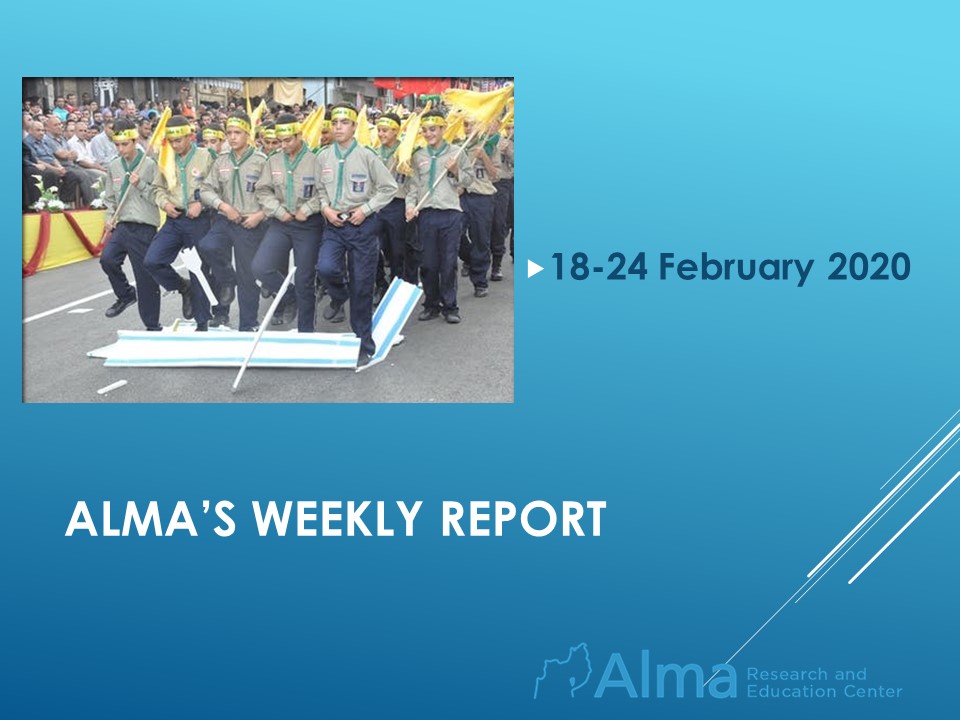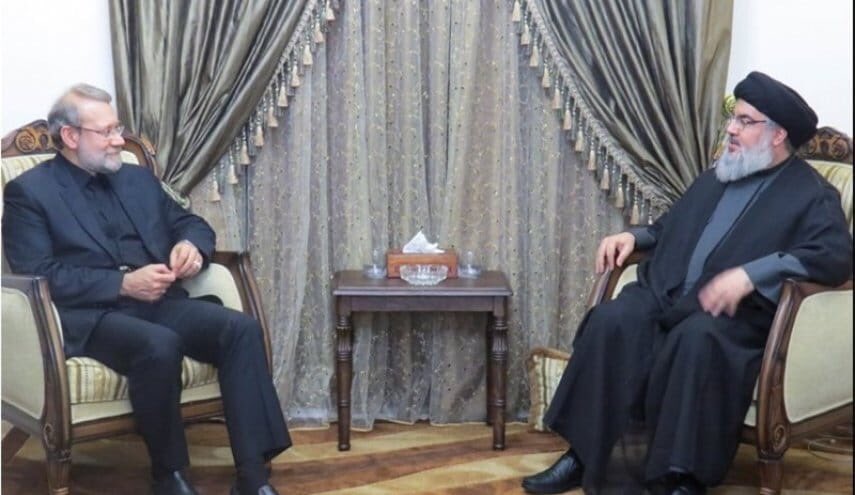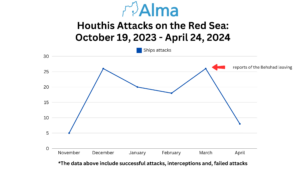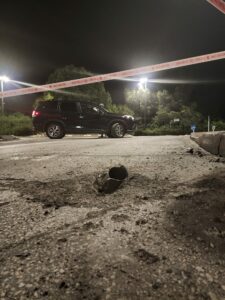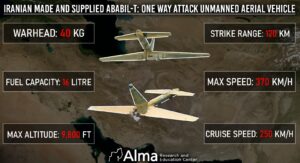Lebanese arena
- Iranian involvement in Lebanon – Visit of the Iranian Speaker of Parliament:
- Ali Larijani, Speaker of the Iranian Parliament arrived in Lebanon on 17 February and met with Lebanese government leaders: President – Michelle Aoun, Prime Minister – Hassan Diab and Lebanese Parliament Speaker Nabia Berry.
- Of course, another meeting took place with Hassan Nasrallah – Hezbollah’s Secretary General. During the meeting, they discussed recent developments in the region and ways of dealing with the various challenges.
- During his talks with the three heads of government, Larijani proposed to provide Lebanon with Iranian aid in order to assist in the healing of the economic crisis, particularly in the electricity sector. Following the above suggestion Hezbollah supporters on Twitter called on the Lebanese government to accept Iranian aid under the hashtag “yes to Iran’s aid to Lebanon.”

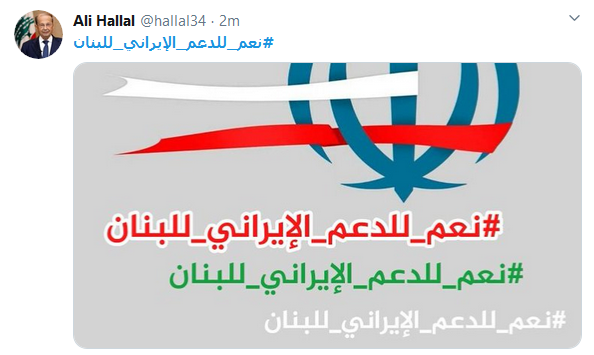
- The Iranian involvement in Lebanon – The Corona virus flare-up:
- Criticism towards Iran arose on Lebanese social and general media upon the return of a Lebanese citizen, whom had contracted the Corona virus in the city of Qom in Iran.
- The leading MTV Lebanese news channel announced, “As if what Iran is generously doing for Lebanon is not enough, it sent us Corona to complete the good. Thank you Iran, for allowing a plane with Corona contracted individuals to enter our airspace. This is what cooperation between the states looks like? Is this the aid you promised?“
- Sources close to Hezbollah have condemned the demands in Lebanon calling on the suspension of flights between Lebanon and Iran, questioning the need with the query: “why not stop flights to France and Italy, where the virus is also spreading“.
- Iranian involvement in Lebanon – continued reactions to the construction of Soleimani’s statue in the village of Maroun al-Ras in southern Lebanon (see our previous weekly review):
a. The online newspaper “al Mayadeen” reviewed the “Iranian intrusions” into Lebanon by naming other monuments with Iranian context located in Lebanon:
1) Large posters of Qasem Soleimani on the edges of the Beirut airport Highway.
2) A monument positioned on the Tire marine promenade exhibiting an iron coffin wrapped in an American flag with a red flag behind it. The display, calling for the vengeance of the Shiite community for the killing of Soleimani reads “Removal of US Army from all the area”.
3) A number of triumphal arches placed on the Baalbek – al Hermel road and on the southern entrance to el Zahrani (in Lebanon) welcoming visitors.
b. Hezbollah’s security square in the Dahiya neighborhood (Beirut) is covered with Islamic Republic slogans. The streets in the security square are filled with iron reservoirs of water wrapped in the Iranian flag and on them signs reading: “Drink with the help of the (Iranian) Republic!” The al-Janubiyya newspaper sees the Soleimani statue as a continuation of the Iranian cultural invasion and the continuance of the Iranian ideology takeover of religion, politics and society by means of Hezbollah.
Lebanon is an easy and permissible place, no such statue has been placed anywhere else.
The statue, including the posture in which it stands, together with the hand gesture, turns out to imitate dozens of statues placed by the former Iraqi regime led by Saddam Hussein, statues of soldiers standing on the coast of the city of Basra pointing at Iran. Sculptures symbolizing the Iraq-Iran war with the enemy approaching from the east. Looking at the statues, one cannot help but associate Solimani’s sculpture pointing to occupied Palestine to the statues of the Iraqi soldiers pointing at Iran. The replication of these two exhibits cannot be accidental”.
- Indoctrination: The World Scouting Organization (WOSM) began investigating the Scouts Association “Imam Al-Mahdi”:
- The World Scouting Organization has begun investigating whether Hezbollah has a connection to the Imam al Mahdi Scouting Association, founded in 1985 and whether it recruits children and boys training them to become combatants.
- The investigation was initiated into the Imam al Mahdi scouting association following its posting of a picture on its Facebook account. The picture displays an armed masked Hezbollah militant standing in front of the association’s logo, on either side of him are 2 children, each clutching a plastic rifle (one child looks less than 12 years old and the other is less than 7 years old).
- In the terms of the World Scouting Organization, the alleged association with Hezbollah is in violation of the Scout Movement code of avoiding political involvement, not to mention the prominent support for a terrorist organization.
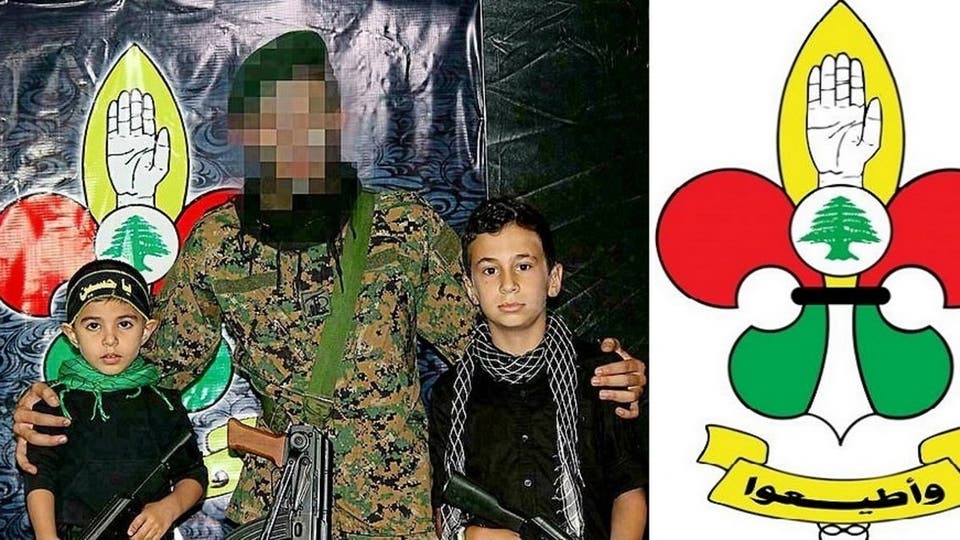
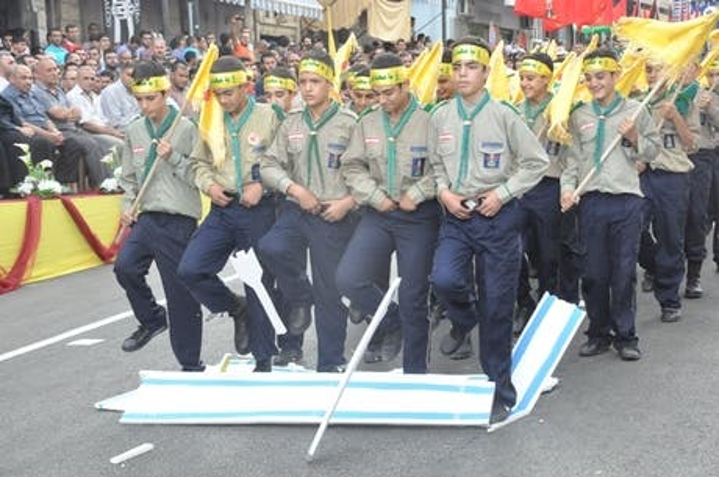
The Syrian arena:
- Idlib province:
- The Turkish offensive – Intense battles between the Turkish army (armor, artillery, infantry and Special Forces) and the Syrian army southeast of Idlib in the town of al Nerab (20 February).
- Russians against Turks – Russian Air Force involvement against Turkish forces and Turkish anti-aircraft firing on Russian planes. The Russian involvement seems to have made the Turkish army freeze the situation for the time being.
- Aleppo province:
- President Assad’s blessing for the Aleppo conquest in defiance of Turkey – In an audiovisual message, President Bashar Assad congratulated his men on the liberation of the city of Aleppo, stating that “the fight must continue until the complete liberation of the state from terrorists and that the next victory will be the conquest of Idlib”. Assad’s statement regarding the city of Idlib is a clear defiance towards Turkey.
- Aleppo International civil airport re-opened after 8 years shutdown with the renewal of domestic flights between Damascus and Aleppo (considered the economic capital of Syria before the civil war).

